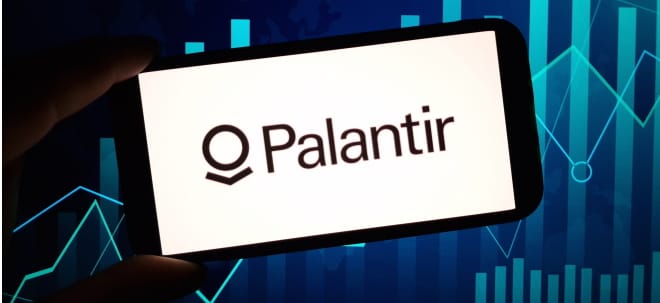Elgan Pharma and Chiesi Group Announce First Participating Infants Dosed in Phase 3 Study of ELGN-2112 for Treatment of Intestinal Malabsorption in Preterm Infants
ELGN-2112 has the potential to be the first innovative therapeutic treatment for intestinal malabsorption in preterm neonates
Elgan Pharma and Chiesi Farmaceutici S.p.A are collaborating to develop ELGN-2112
NAZARETH, Israel and PARMA, Italy, June 5, 2025 /PRNewswire/ -- Elgan Pharma Ltd. and Chiesi Farmaceutici S.p.A today announced the dosing of the first participating infants in FIT-PIV, a Phase 3 clinical study to assess the efficacy and safety of ELGN-2112, an investigational drug candidate for treatment of intestinal malabsorption in preterm infants, a frequent condition associated with life threatening complications.
"We are thrilled to launch the FIT-PIV trial, with ELGN-2112, which we hope will improve outcomes for premature infants," said Miki Olshansky, Founder and CEO of Elgan Pharma. "Elgan Pharma is dedicated to developing therapies for preterm infants, targeting their unique unmet medical needs. Together with our partners at Chiesi, we are committed to improve the outcomes and care of premature infants."
"The enrollment of the first infant patients in this study is critical to our innovation in neonatology," said Diego Ardigò, Executive Vice President, Global Research & Development, Chiesi Group. "Addressing intestinal malabsorption in preterm infants demonstrates Chiesi's ever-evolving approach to rare and emerging medical needs. With over decades of experience in neonatology, Chiesi remains committed to improving care for premature born babies."
About the FIT-PIV Study
The FIT-PIV study is a Phase 3 pivotal, multi-center, double-blind, randomized, two-arm, parallel-group, placebo-controlled study, designed to assess the efficacy and safety of ELGN-2112 on intestinal malabsorption in preterm infants. The study is designed to enroll 420 infants, born in 26-32 weeks and weighing at least 500g. The study is expected to open in approximately 50 sites in the United Kingdom, Europe, Israel and the United States. The FIT-PIV study is part of a comprehensive clinical development plan that includes additional studies.
The primary endpoint of the study is the number of days to achieve full enteral feeding (FEF), which is a milestone associated with reduction of risks of complications.
Reaching FEF earlier means faster and more efficient development of the infant's GI tract. Babies treated with ELGN-2112 in previous trials, including a first phase 3, have previously reached their nutrition goals earlier , their time on parenteral nutrition (PN) was shorter and had fewer complications.[1],[2] For additional information, please visit:
https://clinicaltrials.gov/study/NCT05670951?term=FIT%20PIV&rank=1
About ELGN-2112
ELGN-2112 is a proprietary formulation of recombinant human insulin tailored for neonatal use, delivered enterally and compatible with infants' nutrition. ELGN-2112 is expected to improve gastrointestinal function, increase absorptive surface area and enhance adaptation, thereby reducing the need for intravenous feeding and decreasing the risk of associated complications. Based on its consistent positive results shown across several clinical trials to date, ELGN-2112 can potentially become an important therapy for premature infants.
The novel formulation results in a highly soluble insulin powder for reconstitution, which allows for accurate, low doses, appropriate for preterm babies. It is compatible with all infant nutrition including mother's own milk, donor breast milk and infant formulas and contributes to gut rehabilitation with no systemic exposure to insulin.[3]
Insulin is naturally present in amniotic fluid and breast milk during the first few days of life. There is evidence from studies that insulin has important physiological effects on intestinal growth, cell maturation, and enzyme expression and therefore improves the ability of the intestine to absorb nutrition. Upon birth, a newborn infant's gastrointestinal tract is exposed to insulin via colostrum (breast milk in the first days of life). Importantly, in utero the gastrointestinal tract also exposed to the insulin present in amniotic fluid and consumed by the fetus, resulting in a constant influx of insulin stimulating the gastrointestinal tract. Insulin is one of mother nature's tools for maturing an infant gastrointestinal tract for independence. [4],[5],[6],[7],[8],[9]
About Intestinal Malabsorption in Preterm Infants
Intestinal malabsorption in preterm infants is a rare medical condition characterized by an underdeveloped gastrointestinal tract, leading to the inability to adequately absorb and tolerate the enteral nutrition necessary for proper overall growth, neurological development, and development of the gastrointestinal tract itself. These infants are dependent on parenteral nutrition for fluid and nutrition needs. The combination of a poorly functioning gastrointestinal tract and dependency on parenteral nutrition puts this vulnerable infant population at risk for life-threatening complications, such as necrotizing enterocolitis, and compromises long-term health and neurological developmental outcomes. Accelerating the transition to enteral nutrition is a major goal for preterm infants in the neonatal intensive care unit suffering from intestinal malabsorption.
Gastrointestinal complications can also lead to longer hospitalization and an increased burden for healthcare systems.
About Elgan Pharma
Elgan Pharma is a late-stage clinical stage, neonatology-focused biotechnology company, dedicated to developing safe, tailored therapies to address medical complications and developmental challenges that are common in preterm infants. The company is advancing multiple promising clinical-stage and preclinical investigational therapeutics. For further information, please visit www.elganpharma.com
About Chiesi Group
Chiesi is research-oriented international biopharmaceutical group that develops and markets innovative therapeutic solutions in respiratory health, rare diseases, and specialty care. The company's mission is to improve people's quality of life and act responsibly towards both the community and the environment.
By changing its legal status to a Benefit Corporation in Italy, the US, and France, Chiesi's commitment to creating shared value for society as a whole is legally binding and central to company-wide decision-making. As a certified B Corp since 2019, Chiesi is part of a global community of businesses that meet high standards of social and environmental impact. The company aims to reach Net-Zero greenhouse gases (GHG) emissions by 2035.
With 90 years of experience, Chiesi is headquartered in Parma (Italy), with 31 affiliates worldwide, and counts more than 7,000 employees. The Group's research and development center in Parma works alongside 6 other important R&D hubs in France, the US, Canada, China, the UK, and Sweden. For further information please visit www.chiesi.com
Contacts for Media:
Elgan Pharma
Tsipi Haitovsky
Global Media Liaison
+972-52-598-9892
pr@elganpharma.com
Chiesi Group
Anja Ivic
Communications Manager
+31615961711
a.ivic@chiesi.com
PP-CA-00213 V2.0
[1] Mank E, Sáenz de Pipaón M, Lapillonne A, Carnielli VP, Senterre T, Shamir R, van Toledo L, van Goudoever JB; FIT-04 Study Group. Efficacy and Safety of Enteral Recombinant Human Insulin in Preterm Infants: A Randomized Clinical Trial. JAMA Pediatr. 2022 May 1;176(5):452-460
[2] Shehadeh, N et al. Efficacy and Safety of Enteral Recombinant Human Insulin for Reduction of Time-to-Full Enteral Feeding in Preterm Infants: A Randomized, Double-blind, Placebo-Controlled Trial. IMAJ vol. 23,9 (2021): 563-568
[3] Mank E, Sáenz de Pipaón M, Lapillonne A, Carnielli VP, Senterre T, Shamir R, van Toledo L, van Goudoever JB; FIT-04 Study Group. Efficacy and Safety of Enteral Recombinant Human Insulin in Preterm Infants: A Randomized Clinical Trial. JAMA Pediatr. 2022 May 1;176(5):452-460
[4] Neu, J.; Li, N. The Neonatal Gastrointestinal Tract: Developmental Anatomy, Physiology, and Clinical Implications. Neoreviews 2003, 4, e7–e13
[5] Shulman, R J. Oral insulin increases small intestinal mass and disaccharidase activity in the newborn miniature pig. Pediatric research vol. 28,2 (1990): 171-5
[6] Shulman, R J et al. Effect of oral insulin on lactase activity, mRNA, and posttranscriptional processing in the newborn pig. Journal of pediatric gastroenterology and nutrition vol. 14,2 (1992): 166-72
[7] Shehadeh, N et al. Importance of insulin content in infant diet: suggestion for a new infant formula. Acta Pediatr 2001;90:93–95
[8] Ben Lulu, Shani et al. Oral insulin stimulates intestinal epithelial cell turnover in correlation with insulin-receptor expression along the villus-crypt axis in a rat model of short bowel syndrome. Pediatric surgery international vol. 26,1 (2010): 37-44
[9] Vas et al. Insulin, Testosterone, and Albumin in Term and Preterm Breast Milk, Donor Milk, and Infant Formula. Nutrients 2023;15:1476
SOURCE Elgan Pharma; Chiesi Group

